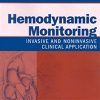Citrate Anticoagulation for CRRT
link.springer.comRegional citrate anticoagulation (RCA) is a viable option for liver failure patients. The pro-posed inducible metabolic pathway hypothesis challenges the belief in hepatic dominance over citrate metabolism during RCA-CRRT.
Additional research, including an animal model, is essential to validate this hypothesis, optimize RCA application for patients previously contraindicated for citrate, and potentially improve anticoagulation strategies in various clinical contexts.
Regional citrate anticoagulation (RCA) is preferred over unfractionated heparin in continuous renal replacement therapy (CRRT) due to benefits like extended filter lifespan (FLS) and reduced bleeding complications.
RCA works by forming complexes with ionized calcium (iCa2+), inhibiting calcium-dependent coagulation. Citrate is administered pre-filter, and calcium is replenished post-filter.

















